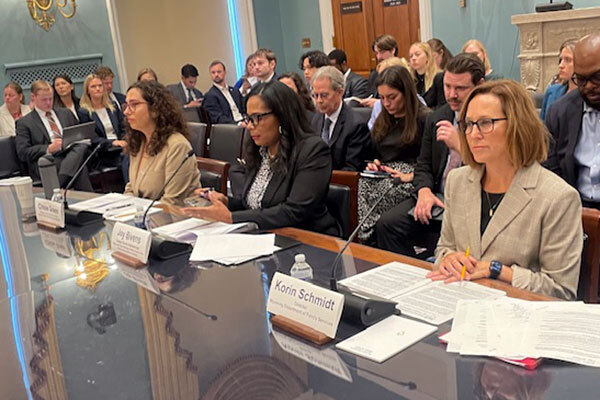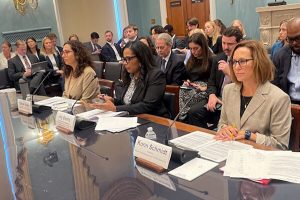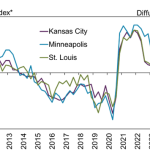House Ag Dems: OBBBA will allow states to end SNAP

SNAP-RFP-091525
States will be allowed to opt out of the Supplemental Nutrition Assistance Program if state officials decide they cannot or will not pay the increased cost share under the One Big Beautiful Bill Act (OBBBA), Democratic members of the House Agriculture Nutrition and Foreign Agriculture Subcommittee repeatedly pointed out at a hearing today. The three witnesses all agreed.
After several other Democrats had made the point that if the states don’t come up with the money to pay their increased share of administrative costs SNAP cannot operate in those states, Rep. Shomari Figures, D-Ala., said, “To be clear, to be crystal clear, what this bill did was to create the potential for the SNAP program to no longer exist” if states can’t or decide not to pay their increased obligation.
Figures said the potential for the states to stop operating the program has changed the debate over the impact of the OBBBA from restricting access to SNAP to ending it in some states.
“I almost want to sit in silence to let that sink in,” Figures said. “The United States of America will allow the states to decide whether or not they will provide federal food assistance.”
Figures asked the three witnesses – Chloe Green, manager of Food and Nutrition Services for the American Public Human Services Association; Joy Bivens, deputy county administrator, Health and Human Services, Franklin County, Ohio, testifying on behalf of the National Association of Counties; and Korin Schmidt, director of the Wyoming Department of Family Services – to confirm that includes children, disabled individuals and homeless veterans. All three said yes.
“That is a sad day when we sit here and look at that,” Figures said.
He noted that it would cost the state of Alabama $172 million to comply with the law under its current payment error rate of 8.5%.
Rep. Jahana Hayes, D-Conn., ranking member on the subcommittee, noted that the Congressional Budget Office has said that “four million people, including families with children, seniors, veterans, and individuals with disabilities, will see the food assistance they need to afford groceries cut substantially or taken away entirely, thanks to their reconciliation bill.”
In an opening statement, Rep. Brad Finstad, R-Minn., subcommittee chairman, called the law that requires the states to bear more of the burden of the costs of administering SNAP the Working Family Tax Cuts Bill. But Rep. Angie Craig, D-Minn., ranking member on the full House Agriculture Committee, pointed out that the overall bill is known as the One Big Beautiful Bill Act and said, “You can’t put lipstick on that pig of a bill,” because it will cut food assistance by $186 billion over 10 years and put massive mandates on the states.
Craig said, “I met with Minnesota’s SNAP administrators last week here in D.C. Counties in my state are wondering how they’ll successfully make the programmatic changes demanded by the Republican budget, while also cutting staff due to the major reduction in administrative funding.”
But Finstad said that the Minnesota state government in 2024 incorrectly paid nearly $77 million in SNAP benefits due to overpayments and underpayments and that “the state’s payment error rate of 8.98% far exceeds neighboring states and its own historical performance.”
Finstad said he has sent Minnesota Gov. Tim Walz, a Democrat, a letter in which he said, “If your administration cannot make improvements that Minnesota has previously demonstrated are possible, it will be clear that budget priorities, not capacity, are at fault. Congress will not overlook continued mismanagement of taxpayer resources at the expense of families in need. The path forward is yours to choose: either defend the status quo or take the steps necessary to restore integrity to Minnesota’s SNAP program.”
Republicans repeatedly turned to Schmidt for guidance because Wyoming’s error rate is under 6%. Schmidt said Wyoming has achieved this low error rate partly because it has implemented “front end eligibility (FEE),” a fraud detection tool used at the time of client application. But Schmidt said that Wyoming has also kept its error rate down by not using many options that would make the system more complicated and prone to errors.
Green said that APHSA members are hesitant to experiment with new flexibilities and innovations because of potential impacts to the payment error rate, and the current environment will potentially make them more reticent to innovate. “As states shoulder greater administrative costs, Congress should consider expanding flexibilities to allow them to adapt to their unique circumstances,” Green said. She also noted that states will not consider the increased cost of SNAP in a vacuum, but will also in the context of changes to Medicaid and other programs.
Bevins noted that in “nine out of the ten county-administered SNAP states, counties must partially or fully cover the non-federal administrative match. North Carolina, New York and New Jersey require counties to fund the entire non-federal share, while California, Colorado, Minnesota, Ohio, Virginia and Wisconsin share the obligation with the state. Only in North Dakota does the state fully cover the non-federal match.” Bevins said that it will be hard for counties to raise the money to pay for the increased share.
Rep. Derrick Van Orden, R-Wis., said he agrees with Democrats that the law should be changed for SNAP cards to have chips so that it will be harder to steal benefits.
After the hearing, Abby Leibman, president and CEO of MAZON: A Jewish Response to Hunger, said, “Recent Republican budget cuts to basic needs programs like SNAP are already impacting families’ abilities to keep food on the table. But today, we heard more of the same lies, half-truths, and fearmongering from conservative members of Congress more interested in misleading headlines and growing tax cuts for the wealthy than actually helping their constituents in need.
“Here are the facts: The budget reconciliation law passed this summer prescribes the largest cuts to SNAP in the history of the program. This stunning federal disinvestment will exacerbate hunger for the most vulnerable among us, including children, single mothers, veterans, and seniors. It will require states to fund unworkable, unprecedented portions of SNAP benefits and administrative costs. It will cut proven programs that help families stretch their grocery dollars, and it will freeze SNAP benefit amounts from keeping pace with the cost of a healthy, realistic diet. By design and intention, it will devastate one of the most effective anti-poverty programs and the most effective anti-hunger program our country has ever known.
“Regardless of the back-slapping and self-congratulatory attitudes of so many in Congress today, we know that the Republican budget cuts to basic needs programs will make our country more hungry, more sick, and more unequal. Our Jewish faith demands that we stand up for those in need, and we will continue to fight for a better way forward that restores hope and security to the tens of millions of Americans who depend on these programs to meet their everyday needs.”







